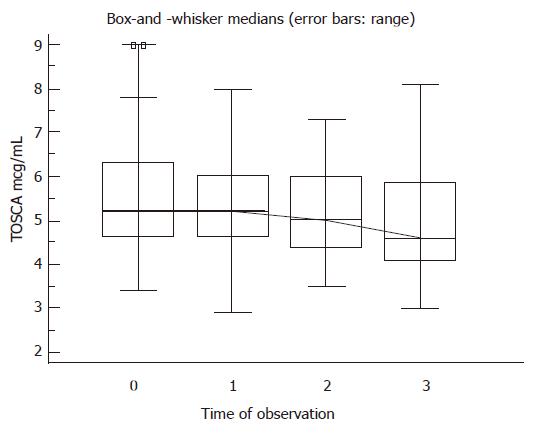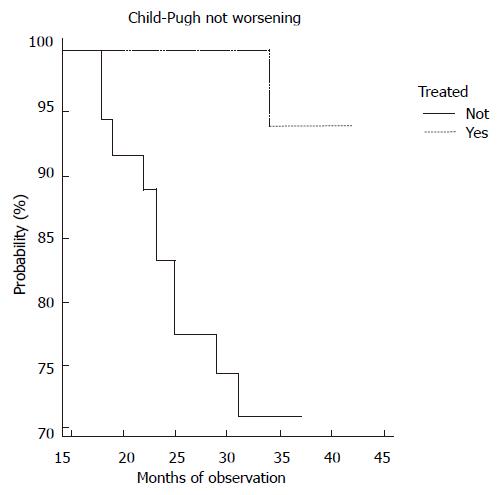Copyright
©2007 Baishideng Publishing Group Co.
World J Gastroenterol. Sep 28, 2007; 13(36): 4903-4908
Published online Sep 28, 2007. doi: 10.3748/wjg.v13.i36.4903
Published online Sep 28, 2007. doi: 10.3748/wjg.v13.i36.4903
Figure 1 Behaviour of the applied quantitative liver function test in 35 patients treated with combined antiviral therapy.
TOSCA: total overnight salivary caffeine assessment. The knurled line shows which groups are significantly different in the values of TOSCA, in respect to the basal ones; ANCOVA (repeated measure) test, P = 0.0001.
Figure 2 Behaviour of Child-Pugh classification in patients on (n 35) or not on (n 36) combined antiviral therapy.
Comparison of the probability curves between treated and non-treated patients was made (Log-rank test). Chi-square test = 8.3, P = 0.004; Hazard ratio = 10.9; 95% CI = 1.75-18.9.
- Citation: Tarantino G, Gentile A, Capone D, Basile V, Tarantino M, Minno MNDD, Cuocolo A, Conca P. Does protracted antiviral therapy impact on HCV-related liver cirrhosis progression? World J Gastroenterol 2007; 13(36): 4903-4908
- URL: https://www.wjgnet.com/1007-9327/full/v13/i36/4903.htm
- DOI: https://dx.doi.org/10.3748/wjg.v13.i36.4903














